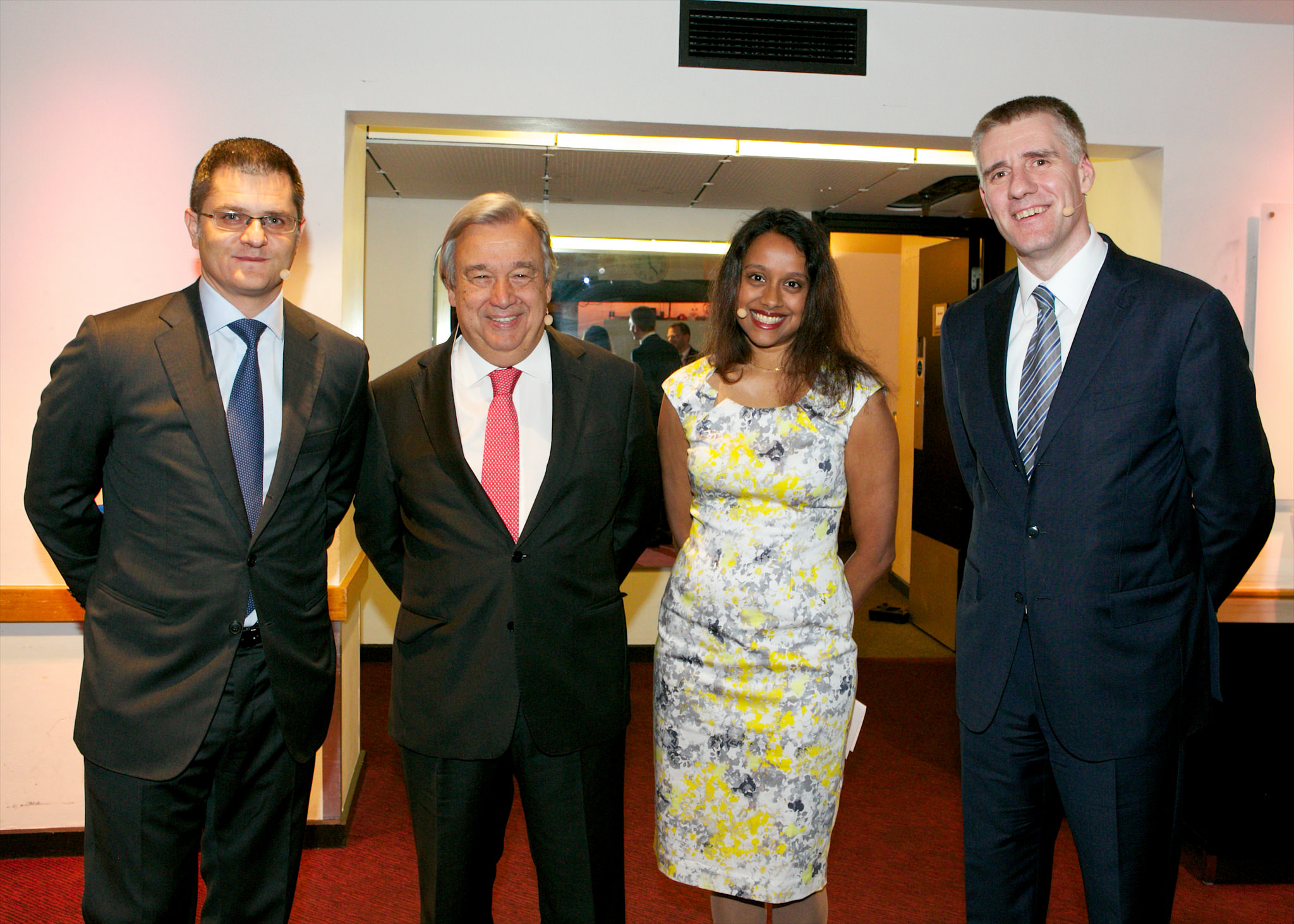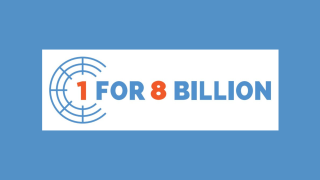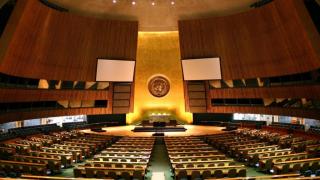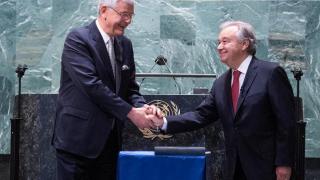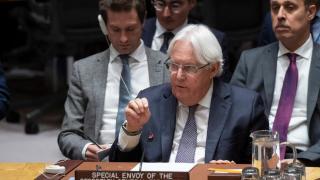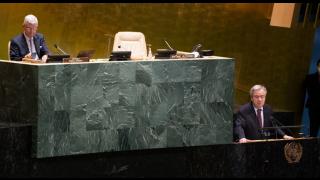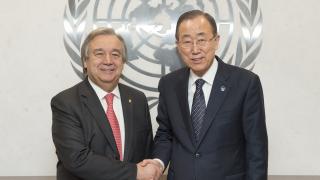
António Guterres has been formally nominated by the UN Security Council to replace Ban Ki-moon as the next UN Secretary-General. A resolution to recommend Mr Guterres, who served as Prime Minister of Portugal and as head of the UN Refugee Agency, was agreed on by acclamation in the Security Council on 6 October at 10am EST.
View the results of the latest Security Council straw poll
His nomination has been widely touted as a vindication of the 1 for 7 Billion campaign, which UNA-UK co-founded to push for a more open and inclusive selection process.
US Ambassador to the UN Samantha Power, for instance, praised the "much more transparent process". She said Guterres' "breakthrough" moment was his performance at the General Assembly informal dialogue, broadcast live online, where his experience came through as he fielded questions from states and civil society. One of 1 for 7 Billion's key reform proposals was conducting open hearings with candidates.
Campaign success
The result is a triumph for UNA-UK's emphasis on merit in the selection.
At the start of the race, Guterres was not widely seen as a leading candidate. After eight male Secretaries-General, many states and NGOs campaigned hard for a woman to be appointed. The informal practice of regional rotation saw many in Eastern Europe claim it was 'their turn' to be in the UN hot seat. Russia declared its preference for combining the two and selecting an Eastern European woman. Both Russia and the US were believed to favour particular female candidates.
Yet despite these challenges, Guterres prevailed, with Security Council members pointing to his strong performance at the General Assembly, as well as his experience and record of achievement as UN High Commissioner for Refugees.
Guterres was not seen as a frontrunner at the beginning of the race. He was "wrong" in terms gender and region, but was widely considered to have done well in his General Assembly dialogue and in other events, with many commenting on his experience and ability to inspire.
Natalie Samarasinghe, Executive Director of UNA-UK and co-founder of the 1 for 7 Billion campaign
The number of negative votes (eight) for late entry Kristalina Georgieva could indicate states' respect for the reformed process facilitated by General Assembly Resolution 69/321 which called for candidates to “be presented in a timely manner”. It may also reflect the momentum that had built up around Guterres.
UNA-UK is pleased that the Council has agreed on a well-qualified candidate who not only engaged in dialogue with the General Assembly and civil society, but who participated in the largest public debate with Secretary-General candidates, organised by UNA-UK and its partners in June this year. Alongside other candidates Vuk Jeremić and Igor Lukšić, Mr Guterres faced questions from a 1,500-strong live audience and from the global public – coordinated through a worldwide poll by Avaaz and Global Citizen that received over 35,000 submissions from 161 countries.
UK leadership
As one of the five permanent, veto-wielding members of the Security Council (P5), the United Kingdom's support for UNA-UK's campaign was integral to its success.
In early 2015, the UK changed its stance on the selection process and began supporting elements of the 1 for 7 Billion reform platform, after sustained campaigning by UNA-UK and members of the UN All-Party Parliamentary Group.
Later that year, Britain's ambassador to the United Nations, Matthew Rycroft, used his maiden speech at the General Assembly to express UK support for "the appointment of a strong and effective Secretary-General", calling for a "predictable timetable" for candidates to be declared to ensure sufficient time for the engagement of all member states.
Next steps on the appointment
The formal appointment is likely to take place next week, when the UN General Assembly is anticipated to approve the Security Council's nomination of Mr Guterres and set the future Secretary-General’s term of office.
UNA-UK is urging General Assembly members to appoint the next UN leader for a single, longer term of office, possibly of seven years. This would enhance the independence of the future Secretary-General and provide him with the necessary political space to make progress without the political and time constraints of reappointment.
We also hope that states will refrain from exerting pressure on Mr Guterres with regard to other senior UN posts. 1 for 7 Billion has consistently opposed horsetrading by which permanent members of the Security Council (and other big powers) extract promises from candidates in exchange for a positive vote: a practice that has happened in the past and which contravenes the letter and spirit of the Charter. It is of crucial importance that there be no monopoly by any state on senior posts and that the Secretary-General is given full freedom to appoint the strongest possible leadership team, from all regions, chosen solely on the basis of merit.
Priorities for the 9th Secretary-General
Mr Guterres is set to take up the reins at the UN at a turbulent time in global affairs, when an overstretched and underfunded UN is constantly asked to do more with less, with little sign of greater political or financial support.
At the same time, there were calls throughout the selection process for the next Secretary-General to focus on a dizzying raft of issues, and to be not only the world's top diplomat, but also an inspiring communicator, a voice for the vulnerable, an effective manager, a hard-headed reform driver, a negotiator, a peace-maker and more. It is clear that both the UN and Mr Guterres will need to prioritise.
In evidence to a House of Lords inquiry on priorities for the next Secretary-General, in the latest issue of our magazine and various other fora, UNA-UK has set out its thoughts on priorities for the next Secretary-General, mindful that he, like his predecessors, will need to manouevre within the constraints of UN politics and process. This includes:
- Setting an ambitious but realistic vision that sees the UN focus on areas where it can make a unique contribution - notably resuming a central role in peace and security
- Actively seeking to improve big-power relations, which are hindering the UN's ability to address pressing conflict and humanitarian situations
- Taking a hands-on approach in conflict negotiations and strengthening the UN's mediation capacity, including through the appointment of female mediators
- Pressing ahead with last year's reform reports on peace operations, peacebuilding and women, peace and security
- Calling for an international accountability mechanism to address sexual abuse by peacekeepers - one of the most damaging issues to the UN
- Developing a clear plan for the UN's contribution to implementing the Sustainable Development Goals and Paris Agreement, which should focus on encouraging, advising and monitoring states; and include proposals for moving away from direct delivery of development over the next 10-15 years and concentrating instead on buidling up the UN's humanitarian rapid response capacity
- Working with states and the UN system to flesh out the New York Declaration for Refugees and Migrants
- Creating concrete plans for taking forward the Human Rights Up Front initiative, including by strengthening formal and informal communication and referral channels between different parts of the UN system
- Creating concrete plans for improving gender equality and women's representation within the UN system, starting with the appointment of a diverse and highly-qualified senior management group (where the Secretary-General has the power to do so)
- Capitalising on civil society and public engagement with the UN as a result of the new Secretary-General selection process, including by appointing a high-leve focal point for civil society
UNA-UK and its colleagues in the 1 for 7 Billion campaign are currently putting together a "People's Agenda" for the next Secretary-General, which will combine the views of our 200 million supporters with input from our 750 NGO partners, and focus on meaningful civil society engagement with the UN.
Photos:
Top: Secretary-General Ban Ki-moon (right) meets with António Guterres, former UN High Commissioner for Refugees, copyright UN Photo/Eskinder Debebe,
Middle: Secretary-General candidates Vuk Jeremić (left), António Guterres (centre-left) and Igor Lukšić (right) meet with the Executive Director of UNA-UK, Natalie Samarasinghe (centre-right) at UNA-UK's public debate in London, copyright UNA-UK/Zoe Norfolk.

